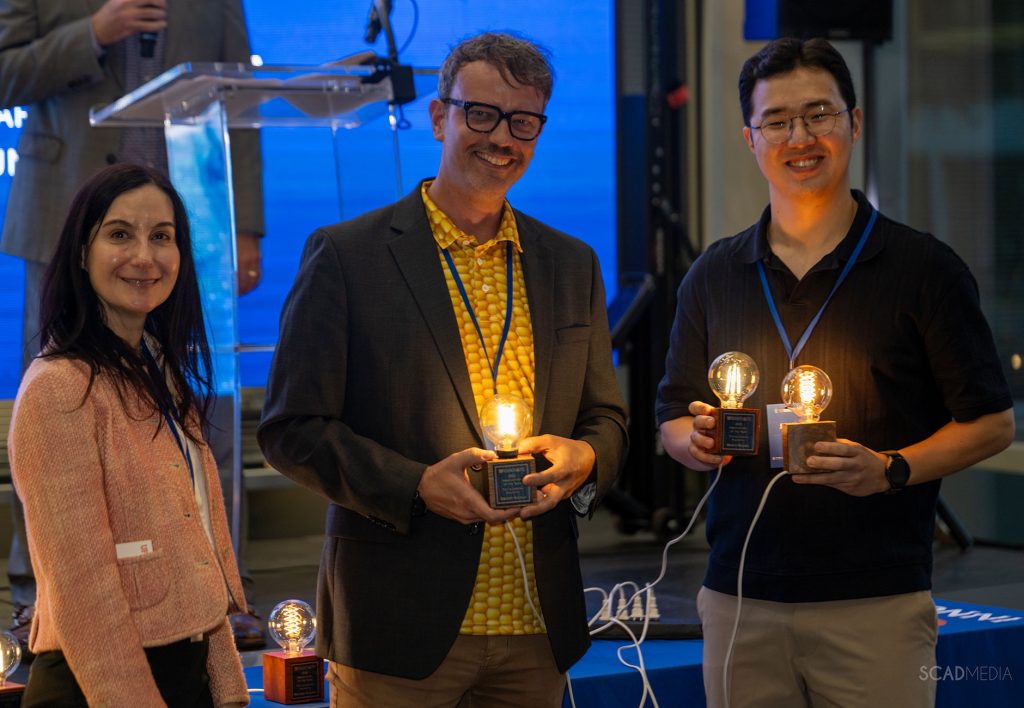From Herbert Wertheim College of Engineering News
Innovation was in the spotlight last week as UF Innovate | Tech Licensing celebrated the top six innovations of 2025 at its annual Standing InnOvation event. Four of the recognized technologies came from faculty researchers in the UF Herbert Wertheim College of Engineering.
Volker Sorger, Ph.D, the Walden and Paula Rhines Endowed Professor in Semiconductor Photonics and deputy director of Strategic Initiatives at the Florida Semiconductor Institute, and his research team, Hangbo Yang, Ph.D., a research associate professor, and Shweta Meshram, a graduate student in the Department of Electrical and Computer Engineering; Whitney Stoppel, Ph.D., associate professor and William P. and Tracy Cirioli Term Professor, in the Department of Chemical Engineering, Gregory Hudalla, Ph.D., from the J. Crayton Pruitt Family Department of Biomedical Engineering and Richard Hennig, Ph.D., in the Department of Materials Science and Engineering were recognized for their groundbreaking research discoveries made in fiscal year 2025.
Standing InnOvation honors UF innovators who disclosed, optioned, licensed or had a patent issued in the fiscal year, which ended on June 30. This year’s celebration saw the recognition of 796 innovators, all of whom contributed in some way to 435 new technologies disclosed, 130 licenses, 130 issued patents or the nine new startup companies. The event is billed as a well-deserved “standing ovation” for excellent work.
New one-stop ELISA test speeds up medical diagnoses without refrigeration
ELISA, which stands for enzyme-linked immunosorbent assay, is a widely used test that detects specific proteins or substances in blood or urine samples. However, traditional ELISA tests are time-consuming and complicated. They also often require refrigeration of key materials.
Hudalla, along with colleagues Marcio Resende, Ph.D., and Junha Park, Ph.D. student, developed a new One-Shot ELISA that is faster and easier to use. This diagnostic tool combines the coating protein, blocking agent and secondary antibody, all of which are typically separate steps in a traditional ELISA, into a single freeze-dried package. This simplifies the process, allowing diagnostic testing to occur almost instantly.
One-Shot ELISA uses freeze-drying, also known as lyophilization, to combine all test components into a single, stable package. This preserves the materials without refrigeration, similar to how freeze-dried foods stay fresh, and enables faster results.
The process also incorporates special stabilizers, including PLGA nanoparticles and phytoglycogen, which protect delicate proteins like antibodies during drying and storage. These lyoprotectants help maintain the test’s stability and reliability by preventing protein damage such as denaturation or aggregation. This innovation not only extends shelf life and simplifies operation but also offers greater flexibility for manufacturers and healthcare providers by eliminating the need for cold chain logistics.
